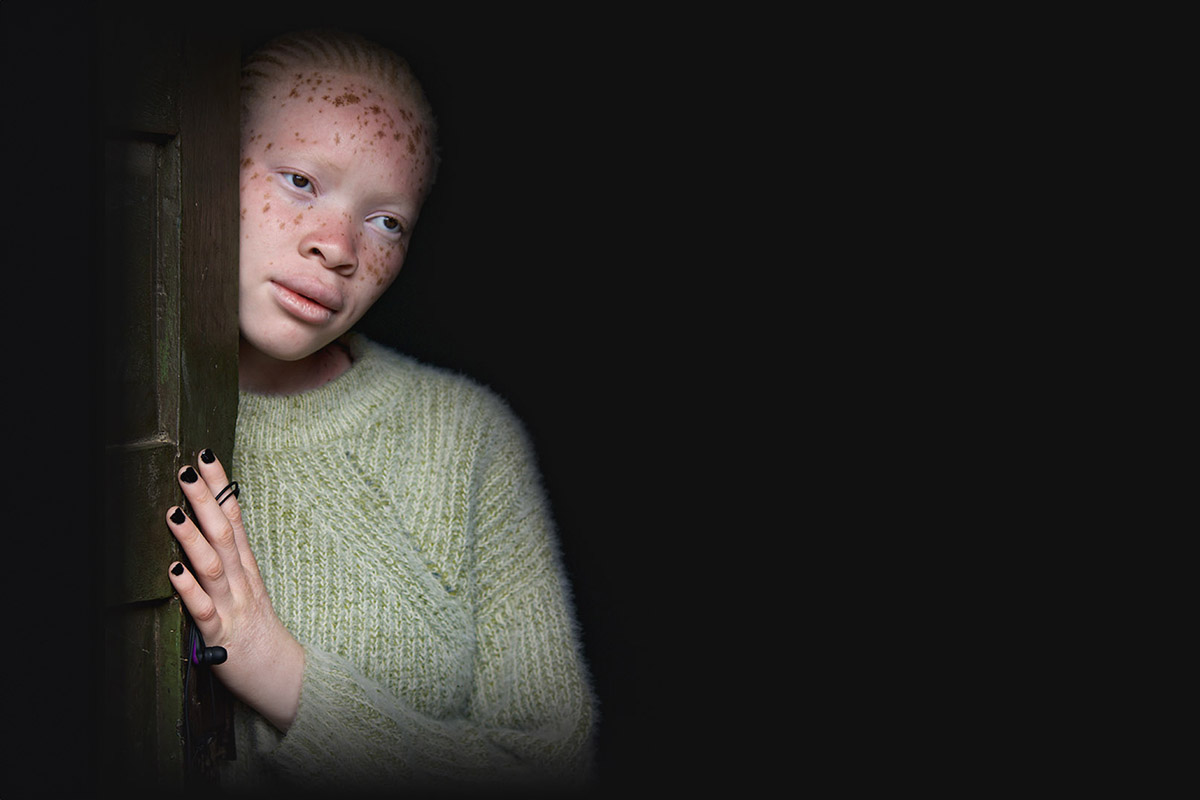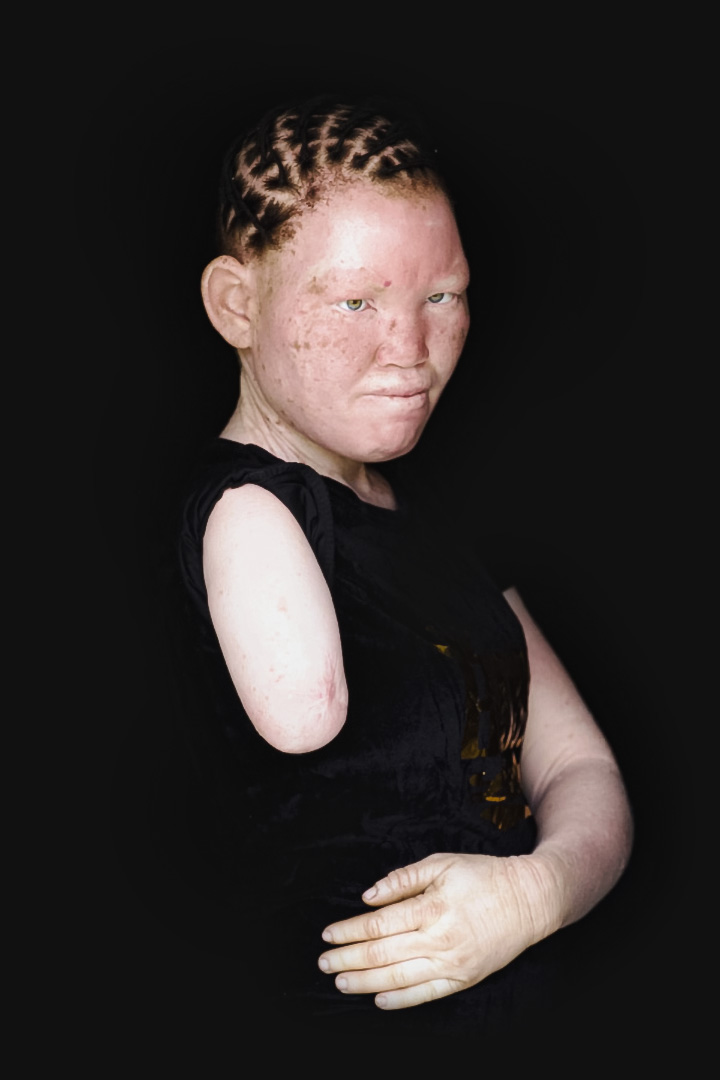
Born
Different
Inside the Lives of People with Albinism in Africa
About the project
Born Different is an innovative project by Czech anthropologist Kateřina Mildnerová and Mozambican photojournalist Antonio Cossa. It documents the lives of people with albinism in Zambia, raises awareness of human rights violations, and delivers direct support through community-based initiatives.
RAISING AWARENESS
- photographic exhibitions, guided tours, lectures for both professional and general audiences, and presentations at conferences
- cooperation with academic institutions, governmental and non-governmental organizations, and with diplomatic and cultural institutions in Africa and Europe
- active communication with the media
FIELDWORK
- combination of ethnographic research and photojournalism
- documentation of cases of human rights violations against people with albinism in Zambia
- authentic testimonies, photographic and video documentation of cases of ritual attacks, sexual abuse, and other forms of violence
ASSISTANCE TO VICTIMS
- material support for the most vulnerable groups – children with albinism and their single mothers, survivors of ritual attacks, victims of skin cancer, and victims of violence
- main target areas: health, safety, and education
- counselling and connections with professionals (dermatologists, lawyers, etc.)

Contacts
• Email: borndifferent.upol@gmail.com
• Facebook page
